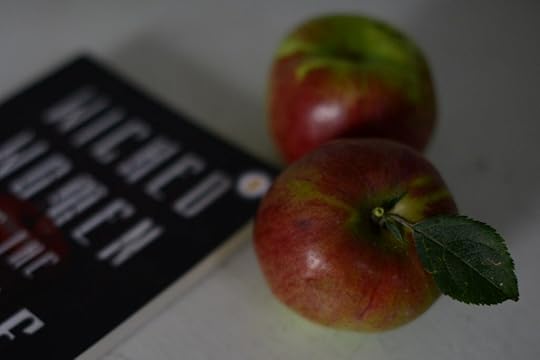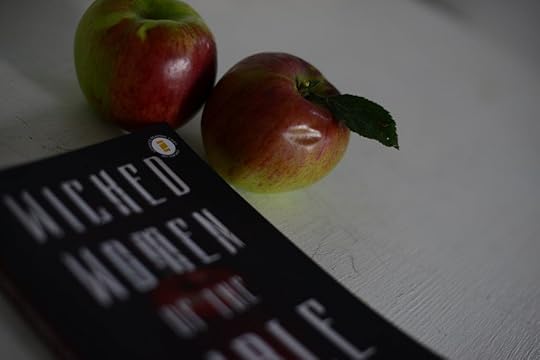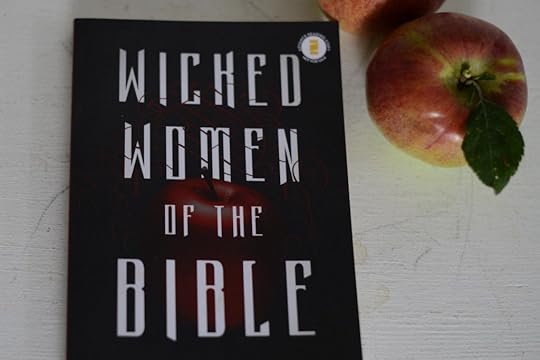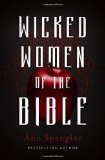why you really need the best kind of story
Ann Spangler has a fascination with and love of the Scripture that have resulted in many books that have opened the Bible to a wide range of readers. Once a skeptic, Ann devoured the Narnia Chronicles and then read Lewis’ Mere Christianity. These books played a major role in her conversion. Through them she began to suspect that God was real, that He was better than she had imagined, and that He was offering her the chance to know Him. With barely a scrap of faith, she prayed that He would accept her life and reveal Himself to her. Since then, she has never looked back, never regretted the decision to follow Christ though it meant repenting of a whole lot of sin. Ann believes the best books are also honest books, and as an author she tries to be real about her own struggles and challenges, realizing that if God is going to do anything with her books it will only be because He specializes in revealing Himself through brokenness. It’s a grace to welcome Ann Spangler to the farm’s front porch today…
T he story captured me, almost against my will.
As a frizzy-haired, pot smoking , former college dropout, I had recently finished reading the Lord of the Rings by J.R.R. Tolkien and was looking for another captivating read.
That’s when a friend lent me the seven books in the Chronicles of Narnia by C. S. Lewis. “Just be careful,” she warned. “The writer’s a Christian and his beliefs kind of seep into the books. Still, it’s a great story.”
Glad for the heads up and determined to fend off any religious messages that might be lurking within the pages of the story, I spent the summer finishing my course work and reading about the adventures of Peter, Susan, Edmund, and Lucy as they explored the land of Narnia.
Despite my resolve to guard my heart, I couldn’t protect it from the light that kept streaming in whenever I read those books.











During an otherwise dark period of my life, joy kept sneaking up on me, with the subversive suggestion that there was a secret at the heart of the universe I had never suspected. Curious about Lewis and his beliefs, I began to read his apologetic works and eventually committed my life to Christ.
A traditional Jewish saying highlights the connection between God and storytelling by saying, “God created human beings because He loves stories.” Perhaps the opposite could also be said. “God created stories because He loves human beings.”
At the risk of putting words into God’s mouth, one might also quote a character in a Virginia Woolf novel, who remarked, “in order to make you understand, to give you my life, I must tell you a story.”
Surely the Bible is the story God is telling us so that He can pour His life into us.
But it’s not always easy reading.
Some of the stories strike us as bizarre. The genealogies can be tedious. We’re clueless about the culture.
But the more I’ve read the Bible, the more I’ve come to love it, especially its stories and the cast of characters who populate them. Certain of these have become so real to me that I consider them my spiritual ancestors, as though I’ve been mysteriously grafted into their family tree.
I can identify with their struggles to believe God and follow Him regardless of their own weaknesses and difficulties.
Take Sarah. She could be my great, great, great-beyond-counting grandmother.
Like her I had a child late in life (of course she was 90 and I was only 46 when I adopted my first child.) Like her, I’m a work in progress with a heart that’s sometimes filled with more shadows than light. Like Sarah, I struggle to hold on when God’s promises seem to take an agonizing amount of time to reach their fulfillment.
What I love most about her story is the laughter that’s threaded throughout it.
When God hears Sarah laughing at the outlandish promise He makes—that she will bear a child in her old age— He poses a question we must all answer: “Is anything too hard for God?”
Subsequent events provide Sarah with her own answer.
When Isaac is born, she finally gets the great celestial joke, that God always wins and that we win too as we place our trust in Him. So she names her son, Isaac, which means “laughter.”
Wouldn’t it be great to have a child named laughter? Every time you were tempted to worry about him, his name would remind you of God’s ability to triumph no matter what. We all need more “Isaacs” in our life.
When I traveled to Israel a few years ago, I had the privilege of visiting Sarah’s tomb in a region of the West Bank that is often off limits to tourists. I could hardly believe my good fortune not only in visiting her grave but in standing so close to the place where she and Abraham had pitched their tents and encountered God.
I could imagine her laughing as she eavesdropped on the conversation God was having with Abraham, assuring her 99-year-old husband that she would bear him a son.
It is not hard to envision her exclaiming: “After I am worn out and my master is old, will I now have this pleasure?” (Genesis 18: 12, NIV) Standing in that place, so close to where Sarah had once lived, I could imagine the scene.
Wicked old. That is Sarah. Her skin hangs like sackcloth, wrinkled and rough. Yet hers is a face that still makes men look, so beautiful it once charmed kings.
Some might think her a fool for all the non-stop laughter. Her body shakes with it. But she is no fool, only a woman who can’t stop marveling at what God has done.
Though her husband is more than a hundred years old and she not far behind, she’s pregnant with his child. Who wouldn’t find that funny? Two old sticks kindling a fire!
But then it comes—another sharp pain snaking down her leg. Ow! The added weight is hard to bear, and loose joints make her wonder whether she will lose her balance and topple over.
Though the baby is so ripe she can hardly bend, she never complains. How could she since the Almighty has answered her prayers?
Sarah laughs again, this time because the baby is kicking, his feet thumping rabbit-like against her belly, telling her he’s ready to get going.
But how can a ninety-year-old woman survive childbirth? But Sarah has not forgotten the promise God made, first in a dream to Abraham, and then last year in broad daylight when he visited them both at their tent near the great trees of Mamre.
“Your wife will have a son.”
Listening at the door of her tent to the stranger’s promise to Abraham, she begins to laugh. “After I am worn out and my husband is old, will I now have this pleasure?”
And laugh she did and laugh she would until the day her son Isaac—whose name means “laughter”—is finally born. She and Abraham laugh together.
The joy rises up strong and wild and even were she to try she cannot push it down. “God has brought me laughter,” she says, “and everyone who hears about this will laugh with me. Who would have said to Abraham that Sarah would nurse children? Yet I have borne him a son in his old age.”
And so it is that in her old age Sarah comes to understand that God has a sense of humor.
Despite every shred of trouble and every evil circumstance, she knows that in the end He will prevail, laughing His enemies to scorn.
That’s how I see Sarah at the age of ninety.
Cradling a child in her arms and laughing at the days to come because she finally gets it—that her loving, all-powerful God is not only in charge of the universe but that He is in charge of her small world too.
Had she been alive to hear the words of the prophet Jeremiah, I’m sure she would have nodded her head in fierce agreement as he proclaimed:
“For I know the plans I have for you,” declares the Lord, “plans to prosper you and not to harm you, plans to give you hope and a future.” (Jeremiah 29: 11, NIV)
Ann Spangler is an award-winning writer and the author of many bestselling books, including Praying the Names of God, Praying the Names of Jesus, and The One Year Devotions for Women. She is also coauthor of Women of the Bible and Sitting at the Feet of Rabbi Jesus and the general editor of The Names of God Bible. Ann’s fascination with and love of Scripture have resulted in books that have opened the Bible to a wide range of readers. She and her two daughters live in Grand Rapids, Michigan.
In Wicked Women of the Bible Ann Spangler tells the stories of twenty wicked and “wicked good” women in greater detail. At the end of each story, Ann provides a brief section including additional historical and cultural background as well as a brief Bible study. The fascinating stories of these women of the Bible reveal a God who stoops down to meet us where we are to extend His love and mercy. Highly recommending Wicked Women of the Bible for every woman seeking to know Him more.
[ Our humble thanks to Zondervan for their partnership in today’s devotion ]

Ann Voskamp's Blog
- Ann Voskamp's profile
- 1369 followers






